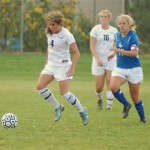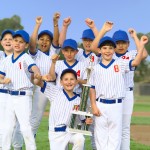 School’s back in session. Why not take the opportunity to start talking about fitness with your youngster. Encourage them to learn the proper principles through a professional, instead of through gossip and fads. Invite their friends to join in on setting up healthy behaviors for a lifetime. Although they’ll probably never admit it, as they grow up they’ll appreciate knowing how to separate the facts of fitness, from the fiction of what they may see and hear.
School’s back in session. Why not take the opportunity to start talking about fitness with your youngster. Encourage them to learn the proper principles through a professional, instead of through gossip and fads. Invite their friends to join in on setting up healthy behaviors for a lifetime. Although they’ll probably never admit it, as they grow up they’ll appreciate knowing how to separate the facts of fitness, from the fiction of what they may see and hear.
Stay engaged with your teen to manage their activity by keeping a few points in mind:
Invest in professional instruction. Private instruction, community class or sport clubs will provide the basic principles of fitness.
Designate a space. Whether it’s a space in the garage, a corner of the room or shared living space, designate the area as the gym.
Allow their creativity. Posters, music and having a say in the location of the workout space will empower teens to want to make the effort to participate.
Base principles on science. Many mixed messages exist in the media and it’s only natural for young people to confuse what they read, see and hear with the facts of physiology.
Praise efforts. Anytime active time is better than inactive time!
Preach balanced behavior. Being mindful of words and attitude toward wellness will go a long way to establishing and setting a healthy example.
Listen. What kinds of statements are you hearing from your youngster regarding health and fitness. Don’t let mumbles or words during a quick passing of self-doubt or low self-esteem go unnoticed.
 Subscribe
Subscribe
